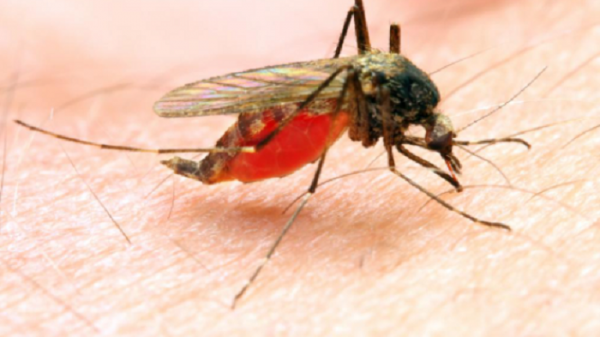Malaria annual infection declines 93 percent

Shawdesh desk:
The annual infection rate of Malaria has been reduced to 93 percent in thirteen years since begining of the comprehensive national prevention programme.
According to the National Malaria Control Programme (NMCP), the infection was 84.69 thousand back in 2008 which came down to 6.13 thousand in 2020.
Bangladesh launched the comprehensive programe to control Malaria in 2007 in association with 13 non-government organization led by Brac.
Addressing a round table in-person on Saturday, experts informed that the Malaria is now confined into the 72 upazilas of 13 districts aligned to border area while the infection rate is high in three hilly districts.
Bangla newspaper, Kaler Kantho organized the roundtable titled ‘Covid challenges in Malaria control’ in association with Brac, the lead agency of the national malaria control programme at its head office in capital’s Bashundhara residential area.
Prime Minister’s personal physician Dr Abm Abdullah was the chief guest at the roundtable while Directorate General of Health Services former director general MA Fayez was guest of honour on the occasion. Kaler Kantho Editor Imdadul Haq Milan conducted the discussion meeting.
Noted medicine specialist Dr Abdullah said Bangladesh has set an example to control the corona virus diseases through initiating mass inoculation while many development countries struggle with surge in infection rate.
“Our doctors and other frontline medical staff have been playing the courgeous role to save the nation from curse of the virus. Prime Minister Sheikh Hasina has been taken timely decision to lead the country amid pandemic. There are many propaganda raised against the corona vaccination. However, the people take vaccine in own interest,” Dr Abdullah, who serves in rank of a secretary, told the meeting.
Regarding the control of malaria, Dr Abdullah suggested for conducting more research works on its variant to strengthen field activities of national programme.
Health services’ former director general MA Faiz emphasised of reporting on 23 communicable diseases including Malaria to the authorities concern following the national framework.
Former additional director general Dr Sanya Tahmina Jhora recommended for conducting research on higher and lower trend of the corona virus infections and other communicable diseases to strengthen the health service system.
Emphasising on increasing community engagement to prevent communicable diseases, additional director general Dr Nasima Sultana said the government has been working relentlessly to ensure the quality health services to the people.
Bangladesh launched the comprehensive programe to control Malaria in 2007 in association with 13 non-government organization led by Brac.
Health Service’s NMCP deputy programme manager Dr Afsana Alamgir Khan made keynote presentation while Brac project director Dr Akramul Islam made address of welcome in the meeting.
Bangandhu Sheikh Mujibur Rahman Agriculture University former vice chancellor Prof Mahbubur Rahman, Mugda Medical College principal Prof Ahmedul Kabir, health services disease control director Prof Nazmul Islam, Jahanagirnagare University entomologist Prof Kabirul Bashar, Icddrb associate scientist Dr Muhammad Shafiul Alam, Brac project head Dr Shayla Islam, Kaler Kantho senior reporter Toufiq Maruf and Eclab executive director Syed Tarikul Islam were present in the meeting.
























Leave a Reply